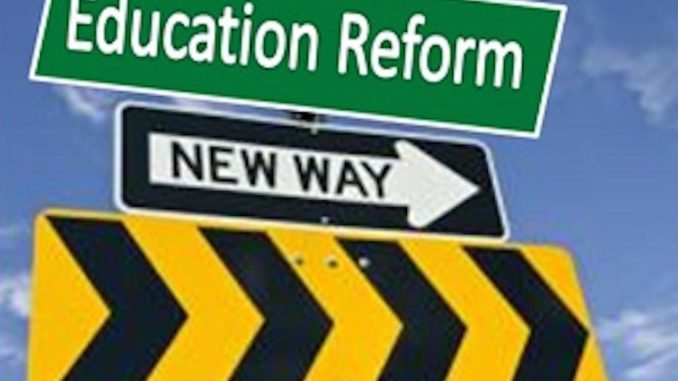
The aim should be to look at what students care about, and what is important to them. Learners should be put on projects that reflect the real world, with teachers being their guides and mentors. Tests are about assessing and not measuring the capability of students. This is what we term real-world project-based learning.
“Our education system is a disaster; it is failing our children, and their future is at stake”, is a catchphrase that has become a broken record to me, as I hear it everywhere – at conferences, during online discussions and casual conversations in various places.
When I hear it, I am taken back to my first two years of teaching, when more experienced teachers complained to the inexperienced ones like me. They didn’t like the rapid changes that were taking place in the education sphere, as they felt comfortable with the old ways of regimented learning procedures. This wasn’t the case for we the newbies, as we had to be creative, collaborate effectively to survive and solve problems non stop.
Indeed change is here and our children must face it. Jobs have evolved from the performance of simple and repetitive tasks, and we are now in an ‘information economy’. By the time today’s graduates are 38, they would have gone through 10 to maybe 14 jobs. Moreover, 15 years from now, 65 percent of graduates will be going into jobs that don’t yet exist.
A lot of the lessons taught in classrooms aren’t relevant for our rapidly changing world. Good teachers are wrestling with how to break away from archaic pedagogies and curricula. Students need to get off the education escalator that leaves them unequipped for an unforeseen future. Our policy makers ought to be eager to develop innovation hubs to help us grapple with creating concrete strategies to get our students future ready.
This leaves a lot to be achieved, in consideration of the current state of education that is chaotic and vague.
I choose to see things from a positive perspective. When things are really bad and one’s back is against the wall, that’s when the mental shift occurs, paving the way for innovation and creativity. For innovation stems from necessity and it’s when the going gets tough that the tough get going.
People who really desire transformation are leveraging on the present state of chaos to develop something new and creative. They are reimagining education to make it relevant, accessible and qualitative. They are providing teachers tools to transform the 19th century classroom into a creative learning space. And they are helping learners develop the skills needed to be future ready.
The aim should be to look at what students care about, and what is important to them. Learners should be put on projects that reflect the real world, with teachers being their guides and mentors. Tests are about assessing and not measuring the capability of students. This is what we term real-world project-based learning.
Transformation in education is here, it’s innovative, scalable and impactful. The sad news is that it remains confined to certain pockets in our society. This is due to the fact that our society is risk averse and has limited enthusiasm for change.
Whenever I discuss the initiative of the foundation that I am working on, I often have people surprised and filled with initial enthusiasm. Then it changes to skepticism.
“Tola, this is an interesting concept but you will face an uphill battle getting people to buy into implementing these ideas in our educational system. This might work where you came from in the States but this won’t work here. It’s hard to change the system.”
They are right; it’s no easy task to change the direction of a flowing tide.
Wait up though: Who is the system? Isn’t it made up of us?
I am an educational consultant, a parent and an educator.
Lots of educators like myself are are willing and eager to try unconventional pedagogies in the classroom but our efforts would be futile without the support of parents, policymakers and the public.
We will make mistakes, of course, but every mistake brings us closer to bridging the huge gap between the education we have and the education we need.
Here is the crossroads we are at right now: We can continue to whine about our abysmal educational system and outdated curricula. We can continue heaping the fault of the failure of students on our teachers. We can continue criticising governments for poor funding and infrastructure. Or we can take actions and take it upon ourselves to effect change, experiment and support new ideas.
When I interact with our children, I imagine what sorts of lives they would live. What kinds of careers will they have. Will they utilise Artificial Intelligence in their professions? My desire is for them to live with purpose and zest.
The crux of the matter is that education is the bedrock for our quest to get them future ready.
And that is the title of one of my books, Future Readiness In Education. In summary: “A generation ago, teachers could expect that what they taught would last their students for a lifetime. Today, schools need to prepare students for more rapid economic and social changes than ever before, for jobs that have not yet been created, to use technologies that have not yet been invented and to solve social problems that have not yet come up.” – Adetola Salau
We need all hands on deck to reform our educational sector.
Adetola Salau, Carismalife4U@gmail.com, an advocate of STEM education, public speaker, author, and social entrepreneur, is passionate about education reform.
END

Be the first to comment